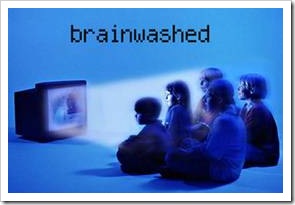 In the past 8 weeks, I have written about the damaging effects of watching too much TV. Last week, I suggested measuring the amount of time your kids watch TV and keeping a record of the kinds of programs they watch. I hope this has given you a good understanding of what you are facing.
In the past 8 weeks, I have written about the damaging effects of watching too much TV. Last week, I suggested measuring the amount of time your kids watch TV and keeping a record of the kinds of programs they watch. I hope this has given you a good understanding of what you are facing.
Today, I will cover kids’ personality types that are more subject to TV addiction and need a bit more care and attention.
Anti-social kids
TV creates a vicious cycle for kids who lack social skills. The more lacking they are, they more they will watch TV and their social skills will get even worse.
Some kids just have better social skills than others. They like being with other kids and polish their skills further with every interaction. However, most kids need to work on their social skills and spending time with other kids can help them improve greatly.
When I worked with young kids, I could tell within two weeks of meeting them which kids had stayed home with Mommy before they came to my center and which kids had been in some form of social environment. All I needed to do was watch them during free play time. The kids who had stayed with Mommy were clingy, did not share, did not know how to get themselves into a game, were sensitive and easily offended and insulted, came more often to ask an adult for help and spent much of their time by themselves.
If you have been reading this blog for a while, you know I have a lot of criticism on the education system, but I keep saying that the best mother in the world cannot give her kid what a group of 20 to 30 kids can give a kid in terms of social skills, which makes the education system the best environment for developing social skills. I have my doubts whether the education system is the best option for academic development, but I am 100% confident it is the best choice for social skills.
Kids work on their social skills from the second they realize there are other people around them and the more play time the have with other kids, the more effective they are in their social interaction.
Watching TV is even worse than being only with Mom for too long, because there is some interaction with Mom, but not with the TV. It is as simple as that – every second kids watch TV (or play computer games/X-box/Nintendo), they are missing the social interaction they need.
If your kid is not very social, the risk of him or her watching too much TV is greater.
Boys vs. girls
 Boys and girls show different symptoms as a result of watching TV, because the media is targeting young male and female audiences with different shows and promotions.
Boys and girls show different symptoms as a result of watching TV, because the media is targeting young male and female audiences with different shows and promotions.
Boys are easily influenced by competitions and shows that present men and boys as strong, aggressive, handy with tools, sporty and violent, while girls are easily influenced by pampering and emotional shows presenting women and girls as sentimental, sensitive, caring, teary, sexual and highly concerned about looks and figure.
If you see symptoms of aggressiveness, risk taking, machismo or chauvinism in the attitude of your boys, examine the TV influences on them.
If you notice obsession with external looks and figure, like your 9-year-old daughter talking about diet for no reason at all, be alert and check for TV influences.
“Keep me busy” kids
Some kids are drawn to the TV as an easy way to keep themselves busy and overcome boredom. This attitude of kids who have no idea how to keep themselves active and interested is easily translated into getting up in the morning and turning on the TV and coming back from school and turning on the TV. It is just an easy solution.
You can tell that kids are the “keep me busy” type when they nag you to keep them busy. I say that these kids see their parents as their “entertainment crew”, just like on a cruise ship. They come to you with “I don’t know what to do?”, “I’m bored” or “What can I do now?”
Just like the social skills cycle, this one is also a hard cycle to get out of. You come up with ideas to keep them busy for a while, but after a while, it is just the same – they come again and their ability to come up with their own activity ideas never develops.
If your kids are the “keep me busy” type and there is TV around, they will choose this easy option of entertainment. Beware!
“One more second” kids
 Some kids just know how to “steal” time from their parents by saying, “Just one more time” or “one second”. These kids use this technique when asked to do their homework, come to dinner or do other things.
Some kids just know how to “steal” time from their parents by saying, “Just one more time” or “one second”. These kids use this technique when asked to do their homework, come to dinner or do other things.
If you ask yourself what kind of person keeps wanting “just one more” of something, while missing out on life, you will soon realize it is an addict. Gamblers want to play just one more game for a chance to win. Drug users, alcoholics and smokers promise to quit tomorrow, in just one more day or one more hit.
But this is just a tactic to make you go away, so they can keep watching.
Addiction is when something takes away our power and controls our life. Would you like your kids’ life to be controlled by an electronic device that shows them what other people want them to see?
Low academic achievers
Kids with low academic achievers find comfort in TV, because it is easy. They do not need to work hard when they watch TV.
Lately I have noticed that even my kids’ school teachers bring more DVDs and movies to school to encourage the kids to learn. At my kids’ school, watching a movie in class is also used as a treat or a special reward.
Kids in the special education system – with ADD, ADHD, fine motor skills problems and even behavior problems – are more likely to watch TV for comfort. I wonder sometimes whether this is not a chicken and egg situation, i.e. did these kids have problems first or did they watch TV first?
 If your kid has some learning difficulties, behavior problems or low academic achievements, watch their TV habits. Every second they spend in front of the TV screen is wasted time they should be spending improving their skills.
If your kid has some learning difficulties, behavior problems or low academic achievements, watch their TV habits. Every second they spend in front of the TV screen is wasted time they should be spending improving their skills.
Some kids are more easily influenced by TV than others. Check the list and see if your kid is subject to TV addiction or not.
Join me next week for parents’ influence on kids’ TV habits.
Until then, talk to your kids about your little survey of their TV-watching habits and find out what they think about it.
Happy parenting,
Ronit
This post is part of the series TV Diet:
- TV Diet (1): Too Much TV?
- TV Diet (2): Health Concerns
- TV Diet (3): Kids Behaving Badly
- TV Diet (4): Kids’ Outlook on Life
- TV Diet (5): Parent-Child Relationships
- TV Diet (6): Disposable relationships
- TV Diet (7): Learning and Education
- TV Diet (8): How Much TV is Too Much?
- TV Diet (9): Kids’ Personalities
- TV Diet (10): Parents’ Influence
- TV Diet (11): The Right TV diet
- TV Diet (12): Junk TV
- TV Diet (13): Raising Aware Kids
- TV Diet (14): Cutting Junk TV
- TV Diet (15): Routine
- TV Diet (16): Healthy Alternatives
- TV Diet (17): More Healthy Alternatives
- TV Diet (18): Conclusion











